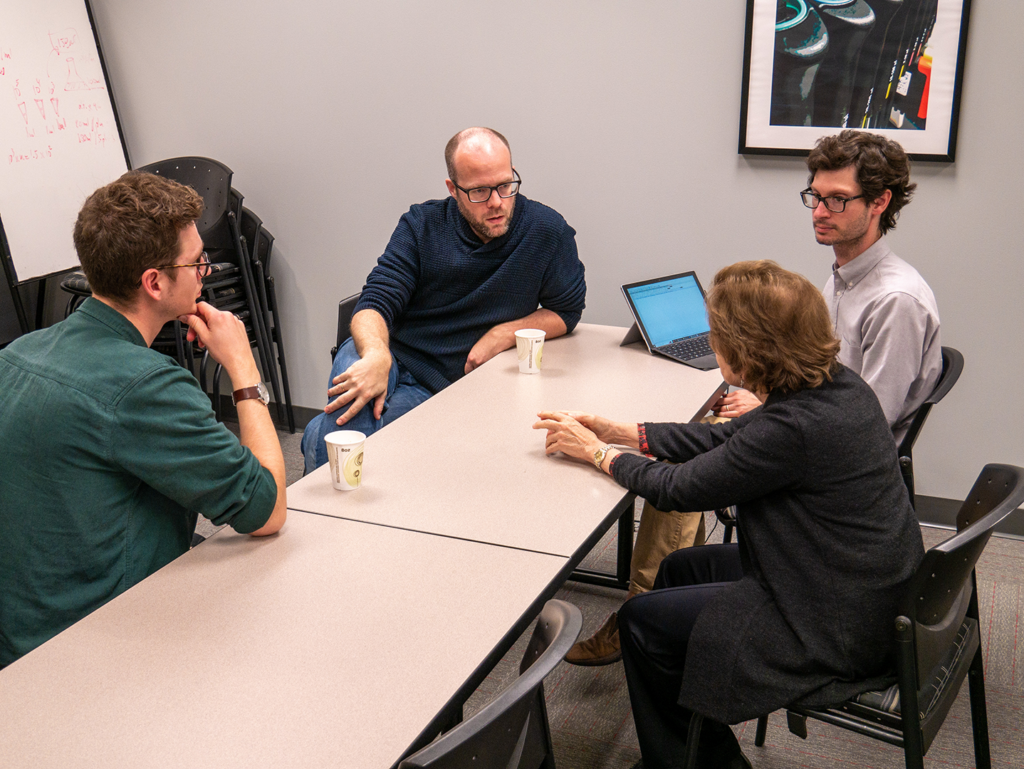
The AIM-Bio Biopharmaceutical Manufacturing Symposium held Nov. 9–11, 2022, provided an excellent opportunity for members of the AIM-Bio project team to begin brainstorming the future of the program. AIM-Bio is at the midpoint of its five-year program duration, and its leadership is interested in continuing and strengthening the collaboration between NC State University and the Technical University of Denmark (DTU) established during the program’s first two years. As a result, the symposium agenda included “future path ideation” sessions on the last two days of the meeting. These sessions provided a unique opportunity for face-to-face interaction between researchers and course developers from NC State, DTU, the Novo Nordisk Foundation, and guests from industry and academia.
The ideation sessions were facilitated by the research principal investigators including DTU’s John Woodley, PhD, and NC State’s Ruben Carbonell, PhD, and Michael Daniele, PhD, who were assisted by DTU’s Krist Gernaey, PhD, and Stefano Menegatti, PhD, from NC State. The sessions began with brainstorming in small groups of three to four participants. Each group brainstormed one to two research challenges that met the following criteria:
- Promote collaboration between NC State and DTU
- Relate to biopharmaceutical manufacturing
- Provide societal or economic impact
- Impact global health and sustainability
- Develop improved solutions for industrial production
Each group presented their challenge ideas, and each idea was grouped into a category of similar ideas. On the next day, five groups met and brainstormed the research challenges further by completing a quad chart that included the following categories:
- Research objectives
- Research approaches
- Research team and facilities
- Impacts
A graduate student from each of the groups then presented the team’s results to the audience. This brainstorming exercise, which generated input from a diverse group of individuals in both academia and industry, yielded a variety of ideas to kick off planning for the future of the AIM-Bio program.